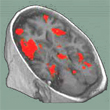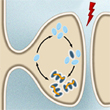Wednesday, 28 August 2013
A Recent Update of our Fundraising Campaign

Well, the on-line donation system to let our readers help fund The Brain from Top to Bottom is still up and running. To learn more about why we have turned to you to help meet our budget, and how you can make a donation, please read the column to the right.
Here is a recent update of our fundraising campaign.
August 26, 2013
In the first two weeks of the fundraising campaign that we began in April 2013, we raised nearly $2 500. Since then, we have raised another $1 750, for a total of $4 250, and we want to say many thanks again to all of you who have contributed. Thanks to your generosity, we expect to be able to keep this web site operating and to keep adding new posts to the French and English blogs.
But to start producing new content on new topics for the site itself, we will have to have more funding. We are still making every effort to secure ongoing funding from major institutions, but that is a lengthy process, and we can’t be sure whether or when it will succeed. In the meantime, contributions from readers like you will continue to be the lifeblood for our efforts, and we hope that you will chip in as much as you can.
From the Simple to the Complex | Comments Closed
Wednesday, 14 August 2013
A Monthly Podcast On Cognitive Science

Do you love in-depth interviews with famous names in the vast field of cognitive science? Does the idea of spending an hour with philosopher Patricia Churchland, neurobiologist Christof Koch, or affective neuroscientist Jaak Panksepp sound pretty good to you? Then you have to take a look at the web site Brain Science Podcast!
Brain Science Podcast was created in 2006 by Dr. Ginger Campbell, an emergency physician with a passionate interest in the brain, consciousness, and the medical implications of the mind-body relationship, and she has been hosting it ever since. From one month to the next, she alternates between interviews with scientists who are leaders in their fields and detailed reports on recent books on topics in which she is interested. (more…)
From Thought to Language | 5 comments »
Tuesday, 6 August 2013
“Centres” of Cognitive Functions in the Brain: A Misleading Concept

The media nowadays often publish reports that scientists using brain-imaging technology have just discovered the brain’s “centre” for anger, jealousy, generosity, or some other specific emotion or cognitive function. But the idea of such a centre is, at best, an outrageous oversimplification, and at worst, completely misleading.
That is the argument made by Dr. William A. Cunningham in the February 2012 issue of the journal Current Directions in Psychological Science. His article deconstructs a very limited view of a part of the brain called the amygdala,which the popular press often describes as the brain’s “fear centre”. (more…)
Emotions and the Brain | 1 comment
Monday, 29 July 2013
The Return of the Invisible Gorilla

Somewhat like Stanley Milgram’s experiment on obedience to authority, the “invisible gorilla” experiment by Daniel Simons and Chris Chabris has become a true classic in the cognitive sciences. Milgram surprised readers with chilling evidence that people could be so compliant to authority that they would carry out orders to inflict potentially fatal electrical shocks on other individuals. Similarly, Simons, Chabris and their gorilla have overturned our belief that we always see all the things that lie in our field of vision. (more…)
The Emergence of Consciousness | Comments Closed
Wednesday, 24 July 2013
Oligomers Help Us Keep Our Memories
 A protein whose molecules have the special ability to stack on top of one another, somewhat like egg cartons, and thus form short, highly stable chains (oligomers), may well play a key role in the mechanisms by which we maintain lasting memories.
A protein whose molecules have the special ability to stack on top of one another, somewhat like egg cartons, and thus form short, highly stable chains (oligomers), may well play a key role in the mechanisms by which we maintain lasting memories.
Indeed, there is always something magical about remembering something that you haven’t thought about in years. But physically speaking, in what form is the corresponding memory trace maintained in your brain over all that time? Neurobiologists know that the whole process occurs in the synapses (the plastic connections between neurons) and have described molecular mechanisms such as long-term potentiation that partly explain this plasticity. (more…)
Memory and the Brain, Mental Disorders | Comments Closed







